Humanities & Social Sciences
University Secretary Tasks CHUSS to Research Makerere University Policy Issues and Staff Anger
Published
1 year agoon
By
Jane Anyango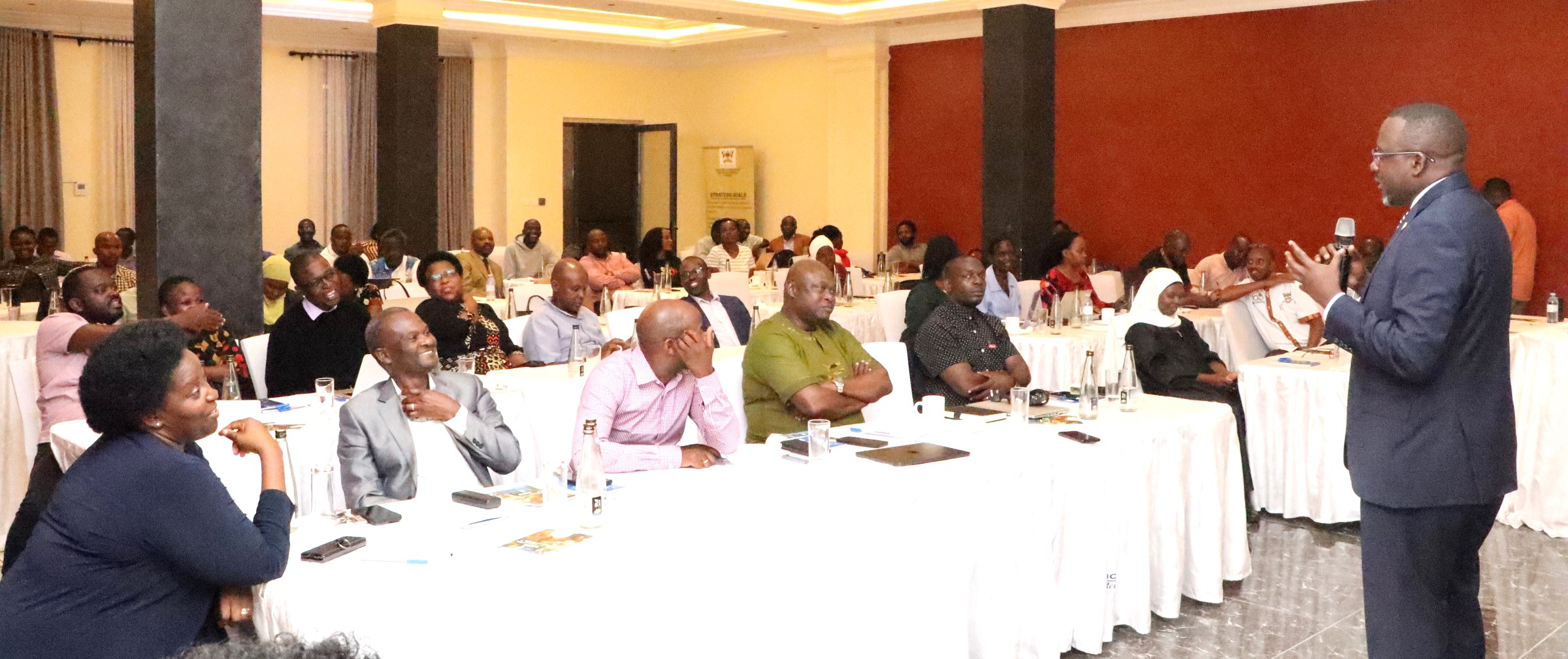
Makerere University’s Secretary, Mr. Yusuf Kiranda, has tasked the College of Humanities and Social Sciences (CHUSS) with investigating university policies and the causes of increasing anger among staff, which he says is impacting morale and productivity. Kiranda made this call during the CHUSS Retreat held on November 1, 2024, where he outlined key concerns about outdated policies, missing frameworks, and a lack of effective communication around new initiatives.
Kiranda highlighted that Makerere’s Council had directed the university management to evaluate its policy ecosystem thoroughly, noting, “There are some policies we have that are rather outdated and need to be reviewed, while others may no longer be necessary.” He emphasized the need for policies addressing emerging issues within the university, urging CHUSS to utilize the Research and Innovation Fund and to collaborate with the university’s Guild of Academic and Support Staff Union (GAMSU) for deeper insights.
A primary concern raised was the prevalent frustration and discontent among university staff, which, according to Kiranda, has been a recurring issue in management and budget discussions. He shared his observations on the rising negativity, stating, “There is anger among staff, from professors to administrative staff, and we are failing to understand why. We hope CHUSS can help us scientifically explore the roots of this dissatisfaction.”
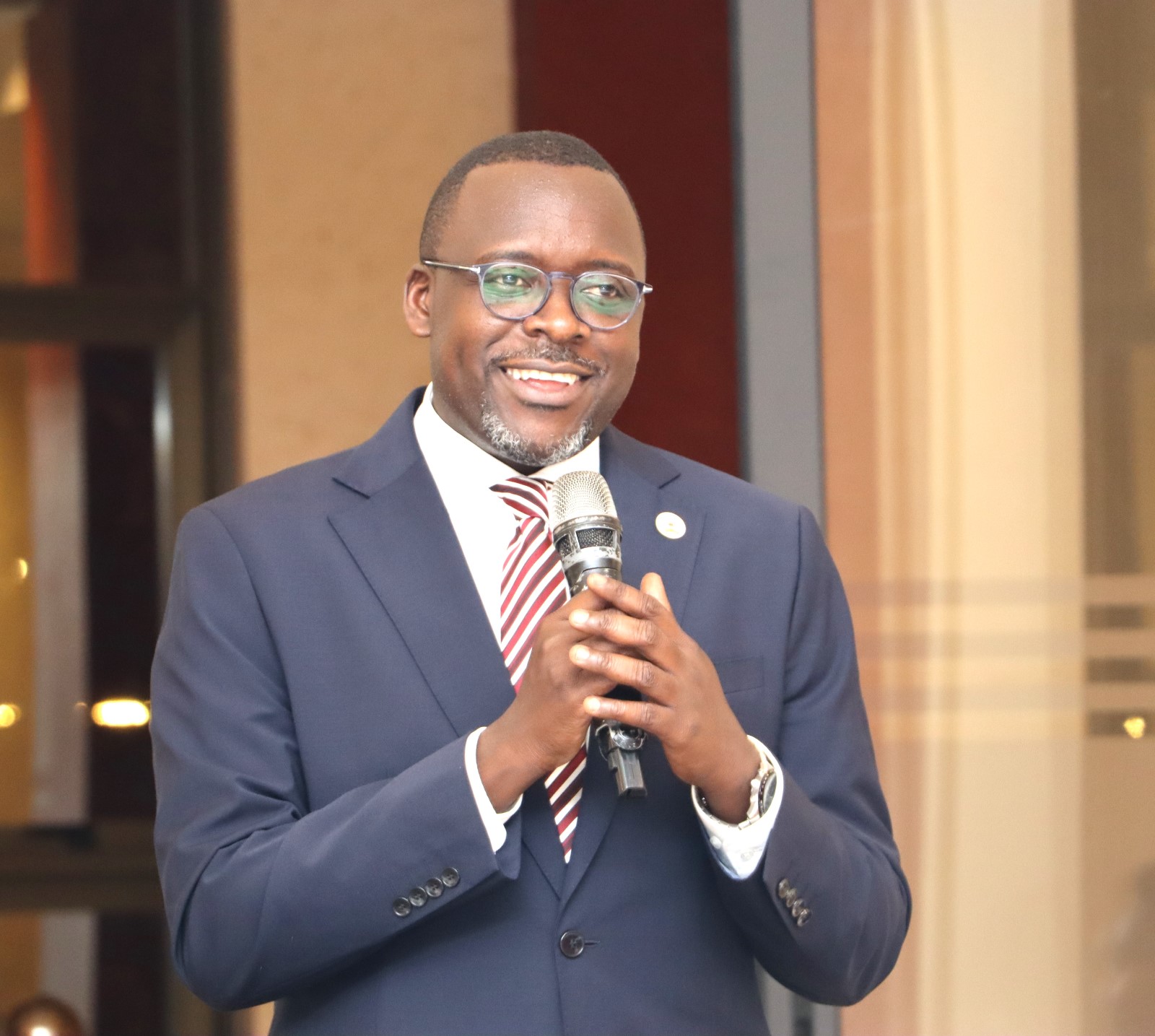
In response, CHUSS Principal Prof. Helen Nkabala Nambalirwa assured Kiranda that the college would prioritize this task, with the School of Psychology taking the lead on the research. “The assignment was entrusted to the right college, and we are committed to understanding these issues,” Prof. Nkabala said, indicating that a dedicated team would be assembled to handle the investigation.
Kiranda also spoke about recent policy initiatives, like the biometric attendance system, which he described as a tool for accountability rather than a “policing mechanism.” He acknowledged the need for clearer communication about such policies, noting, “The narrative presented around biometrics has painted it as a restrictive measure, but it’s meant to enhance accountability and allow for better time management.” Kiranda urged CHUSS to delve into the psychological impact of such policies and explore why they are met with resistance, suggesting that inadequate consultation and misconceptions around policy changes may be fueling resentment.
On a broader note, Kiranda called for a shift in how policies are perceived, encouraging staff to focus on potential benefits rather than drawbacks. Citing an example from the recent grants management policy, he noted, “Every time a policy is introduced, the focus often leans towards what it takes away rather than its intended advantages.”
In his concluding remarks, Kiranda reiterated the Council’s commitment to prioritizing staff welfare and fostering a positive work environment. “Human resources are our most critical asset, and if we can address the underlying anger among staff, it will not only benefit Makerere but also improve the university’s overall contribution to Uganda’s higher education sector,” he stated.
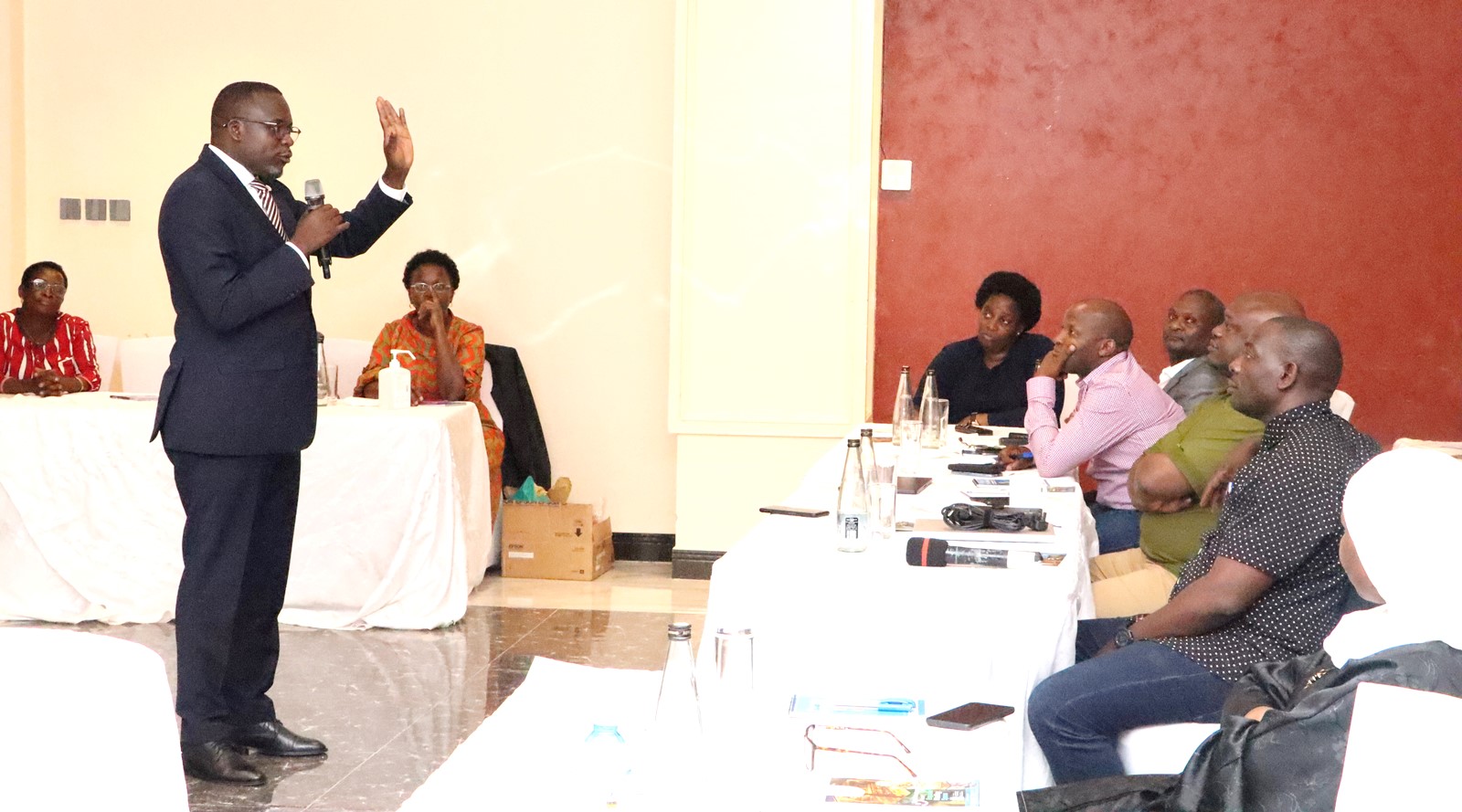
This initiative marks a collaborative step towards refining Makerere University’s policy landscape and enhancing the work environment, with CHUSS taking an active role in shaping solutions.
CHUSS Staff Express Concerns on Policy Decisions, Staffing Issues, and Staff Contracts
In response to to the University Secretarry’s call to an investigation, CHUSS staff voiced growing concerns about policy decisions, staffing challenges, and post-retirement contracts, issues they say, are contributing to a demotivated work environment. The staff described a disconnect between policy decisions made at the top levels of administration and the on-the-ground realities faced by academic and support staff.
One senior staff member from the Department of Literature raised concerns over the recent merging of departments without consultation, describing the impact on morale. “When we got that kind of information, it felt like a funeral in our department,” she said, emphasizing that such unilateral decisions leave staff feeling undervalued. She added, “The Department of Literature is the face of CHUSS; such decisions impact our identity and motivation.”
The issue of post-retirement contracts emerged as another source of discontent. Some staff members who have served Makerere University for decades expressed frustration over perceived disrespect in how contract renewals are handled. “People who have served diligently for over 40 years feel they are not treated with respect,” a department head remarked, linking the feeling of indignity to broader anger among staff. He pointed out that the contracts issue and lack of consultation fuel a sense of helplessness among staff, describing it as “an emotion that comes from a sense of helplessness.”
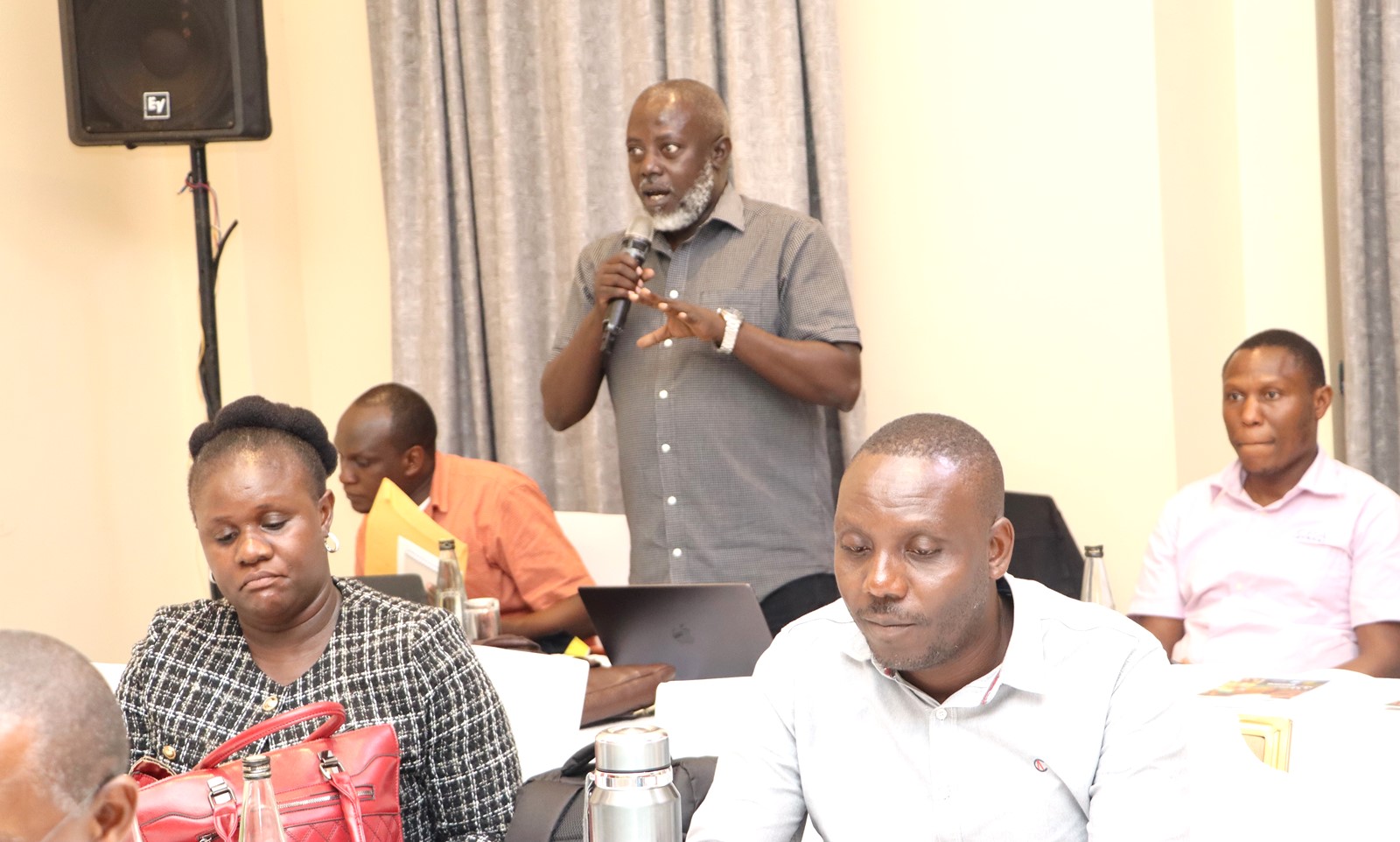
Referring to the recent staff associations concerns, a staff echoed these sentiments, urging for clarity on the terms of new staff contracts, which they described as demotivating. “As association members, we are against those contracts because of how they came about—no one was consulted,” said one representative, who also defended the association’s recent prayer gathering, explaining, “When you feel you’re fighting a power you cannot change, sometimes you resort to God.”
In addition to contract and policy grievances, staff highlighted chronic under-staffing, especially in administrative roles. The College’s registrar, Ms. Florence Birawa, was singled out as an example, managing tasks for multiple schools due to the lack of support. A staff member from the School of Liberal and Performing Arts explained, “She leaves the office at 9 or 10 in the night, works throughout the weekend, yet our requests for additional support have gone unaddressed.” Staff have had to volunteer to assist with her workload, taking minutes in PhD and master’s defenses to manage the backlog.
The conversation also touched on the assumption that new staff could readily replace retiring faculty for specialized course units. One staff member disputed this notion, pointing out that certain subject areas are highly specialized, and not all qualified faculty are equipped to teach them. “There is an assumption that a pool of qualified PhD staff is available, but the reality is different. Some course units remain untaught due to a lack of specialized staff,” he said, emphasizing the need for targeted training in specialized academic areas.
The retreat provided a space for CHUSS staff to openly discuss their grievances and propose actions, including the university’s proposed research into the causes of staff discontent. Staff were appreciative of the Makerere Secretary’s acknowledgment of these challenges, with one staff member concluding, “Instead of telling us to leave if we are angry, it’s good that there is going to be a study on this issue. We need to get to the bottom of the matter and address the real causes of dissatisfaction.”
The University Secretary, Mr. Yusuf Kiranda, reassured staff that their voices would be considered as Makerere University seeks solutions to these pressing issues.
Staff Clarified on Housing, Retirement Policies, and Academic Freedom
In the discussion,Mr. Yusuf Kiranda clarified critical issues concerning housing for staff, post-retirement contracts, and academic freedom, urging for increased transparency and understanding in policy implementation.
Kiranda expressed empathy for custodians, registrars, and security staff who work long hours and travel far to get to campus. “It is a special request,” he noted, “to consider housing provisions for these individuals who work late and sometimes face challenging commutes.” He proposed that instead of staff housing points being based on factors like marital status or family size, points should reflect the service staff provide to the university.
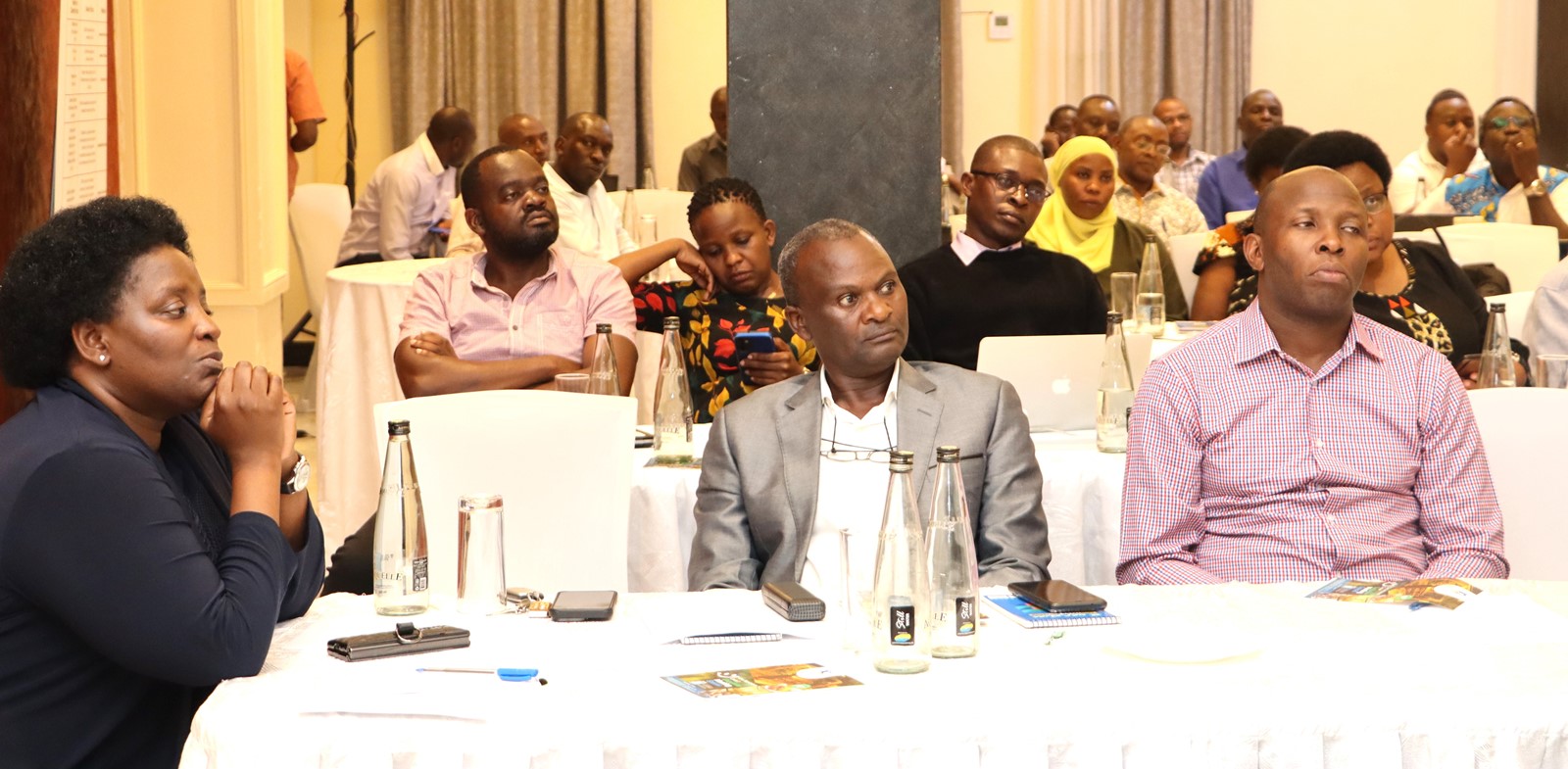
He also addressed the complexities surrounding post-retirement contracts, stressing the need for transparency. Originally, these contracts aimed to retain valuable senior staff due to talent shortages, he explained. “This was never meant to be an entitlement for everyone upon reaching retirement age,” Kiranda said, adding that departments must now demonstrate that retaining a staff member does not disadvantage others awaiting promotion. “The earlier we understand that a post-retirement contract comes at a cost to those who must rise, the quicker we will appreciate the complexity of this issue,” he emphasized.
On the topic of academic freedom and staff perceptions, Kiranda assured employees of their right to speak freely within the university. “There is freedom to express yourself here at Makerere; no one has been sanctioned for merely speaking,” he noted. However, he acknowledged the importance of managing public perceptions, which can affect morale. Kiranda encouraged staff to engage in constructive dialogue while recognizing that academic freedom has reasonable boundaries, especially when it pertains to respectful discourse.
He concluded by affirming the administration’s dedication to supporting staff while balancing the university’s broader operational needs, adding that policies are not static and can be revisited to address evolving challenges.
CHUSS Retreat Foster Staff Engagement, Collaboration, and Well-being
On 1st – 2nd November, 2024, the College of Humanities and Social Sciences (CHUSS) held a retreat at Nican Resort to provide an opportunity for staff to engage in discussions about policies and work environments that affect their daily lives and overall well-being.
The Principal Assoc. Prof. Helen Nkabala, emphasized the importance of such gatherings, noting that they create a platform for staff to shape the future direction of the college together.
“This retreat is about engagement, because it’s in environments like this that we determine our own future and how we want to move together,” Nkabala stated. She highlighted that the retreat allows leaders and staff across various categories, including support and administrative staff, to share their perspectives. “We’ve invited different groups, from college leaders to support staff, to discuss their issues and work on fostering a supportive and inclusive environment,” she added.
Nkabala pointed out that creating a positive work environment is essential for maintaining good health and mental well-being, noting that stress and dissatisfaction at work can lead to health issues. “If we’re not happy at work, life becomes harder. We want to find ways to support each other, even if it’s not always financially,” she said. The retreat encouraged staff to contribute ideas on improving their work environment and well-being, with a focus on community, collaboration, and mental health.
Reflecting on CHUSS’s goal to set an example for excellence across the university, Nkabala acknowledged the contributions of CHUSS leaders and coordinators in supporting quality assurance and improving work processes.
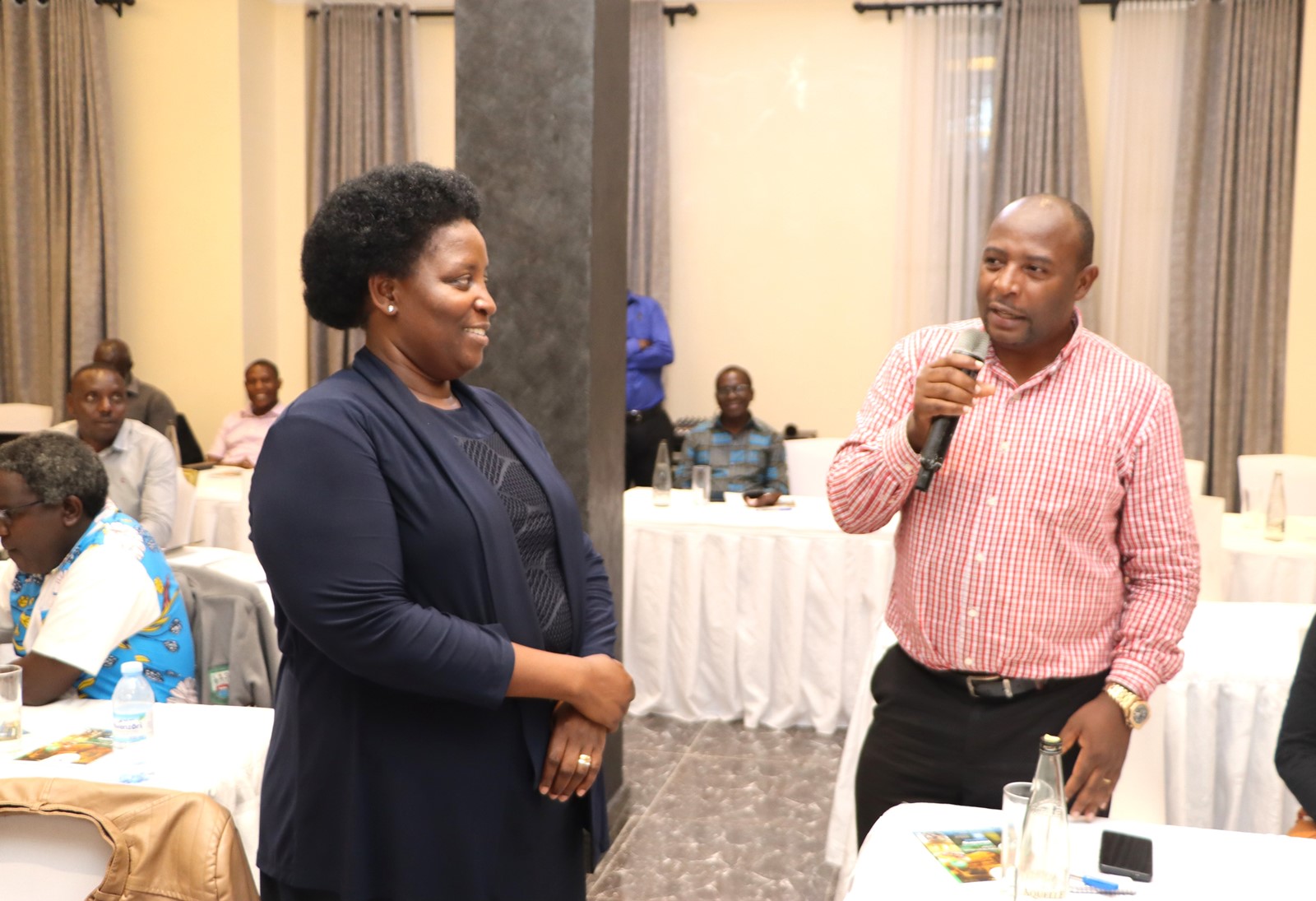
The retreat featured presentations and discussions on e-timetabling and biometrics system by DICTS, Higher degrees’ matters, examinations and internships. Other aspects covered were Quality Assurance and Academic policies and implementation by the Quality Assurance Directorate, Human Resource policies and implementation by the Directorate of Human Resources, Audit and accountability, office etiquette and practical team-building, games and health walks among others.
You may like
-


EU Earmarks Shs19.8bn for 15 Joint PhD Scholarships in Health, Environment Research
-


Call For Applications: MakNCD Masters and PhD Training Opportunities
-
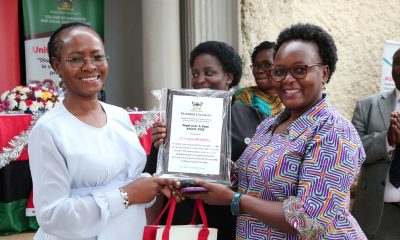

Dr. Pamela Khanakwa Honored for Steering Record 18 PhD Candidates for the Mak 2026 Graduation
-
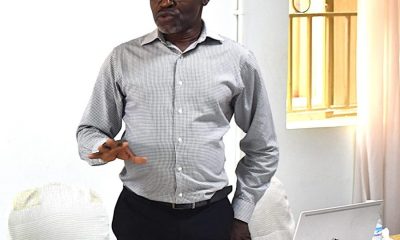

Enhancing Data Quality: NutriFishPlus Research Assistants Retooled Ahead of Baseline Survey
-


Call For Applications: Annual Innovation Commercialisation Award
-


Holistic Retirement Planning includes Psychological, Emotional & Social well-being across all Career Stages
Humanities & Social Sciences
Dr. Pamela Khanakwa Honored for Steering Record 18 PhD Candidates for the Mak 2026 Graduation
Published
2 weeks agoon
January 23, 2026By
Jane Anyango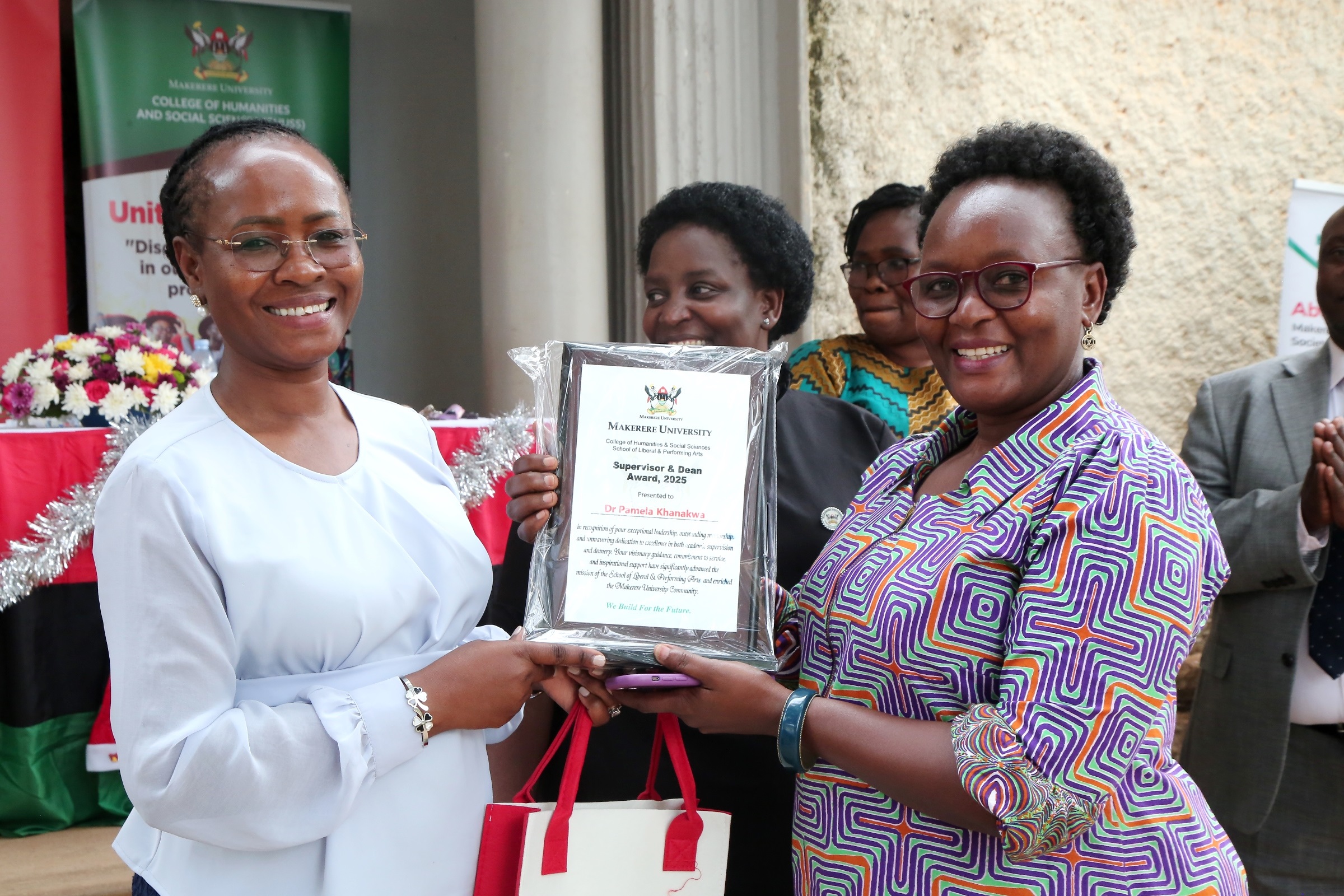
Six personally supervised, three completed in record time, as School of Liberal and Performing Arts sets a historic milestone. Dr. Pamela Khanakwa got the Award as Best PhD Supervisor and Dean
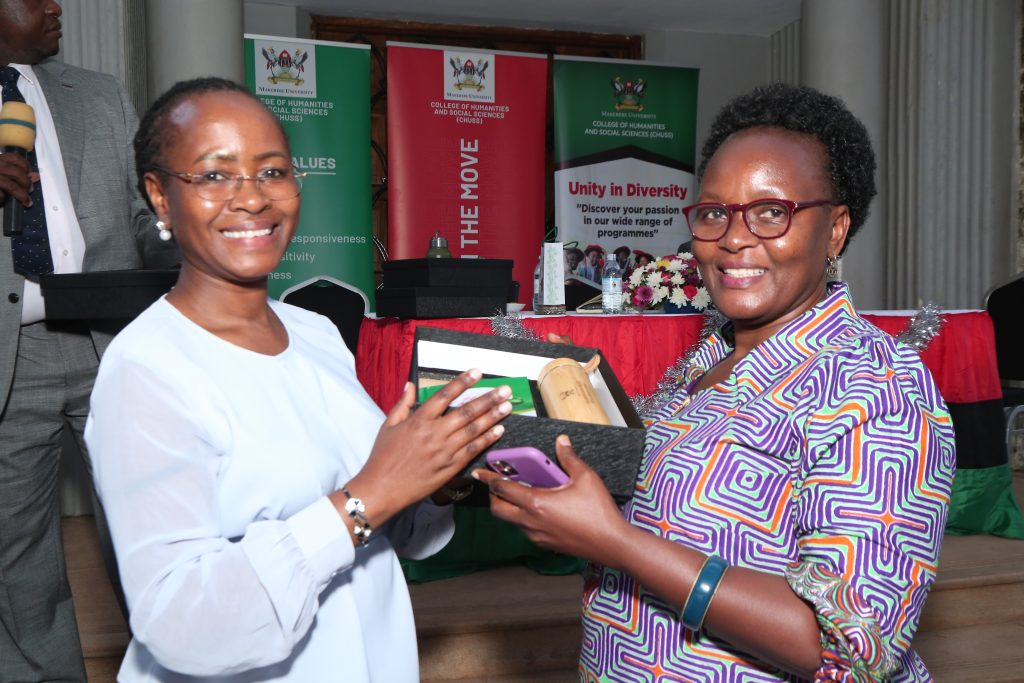
A Historic Academic Milestone for SLPA
The College of Humanities and Social Sciences (CHUSS) recognised the Dean of the School of Liberal and Performing Arts (SLPA), Dr. Pamela Khanakwa, for outstanding academic leadership that has seen the School field 18 PhD candidates for the next 2026 Makerere University Graduation Ceremony scheduled for 24th-27th February. Remarkably, six of these doctoral graduates were directly supervised by Dr. Khanakwa, with three completing within the official three-year timeframe, an exceptional achievement in graduate training. The recognition was announced during the CHUSS End-of-Year Get-Together, where staff applauded Dr. Khanakwa’s dedication, humility, and relentless commitment to postgraduate supervision and timely completion.
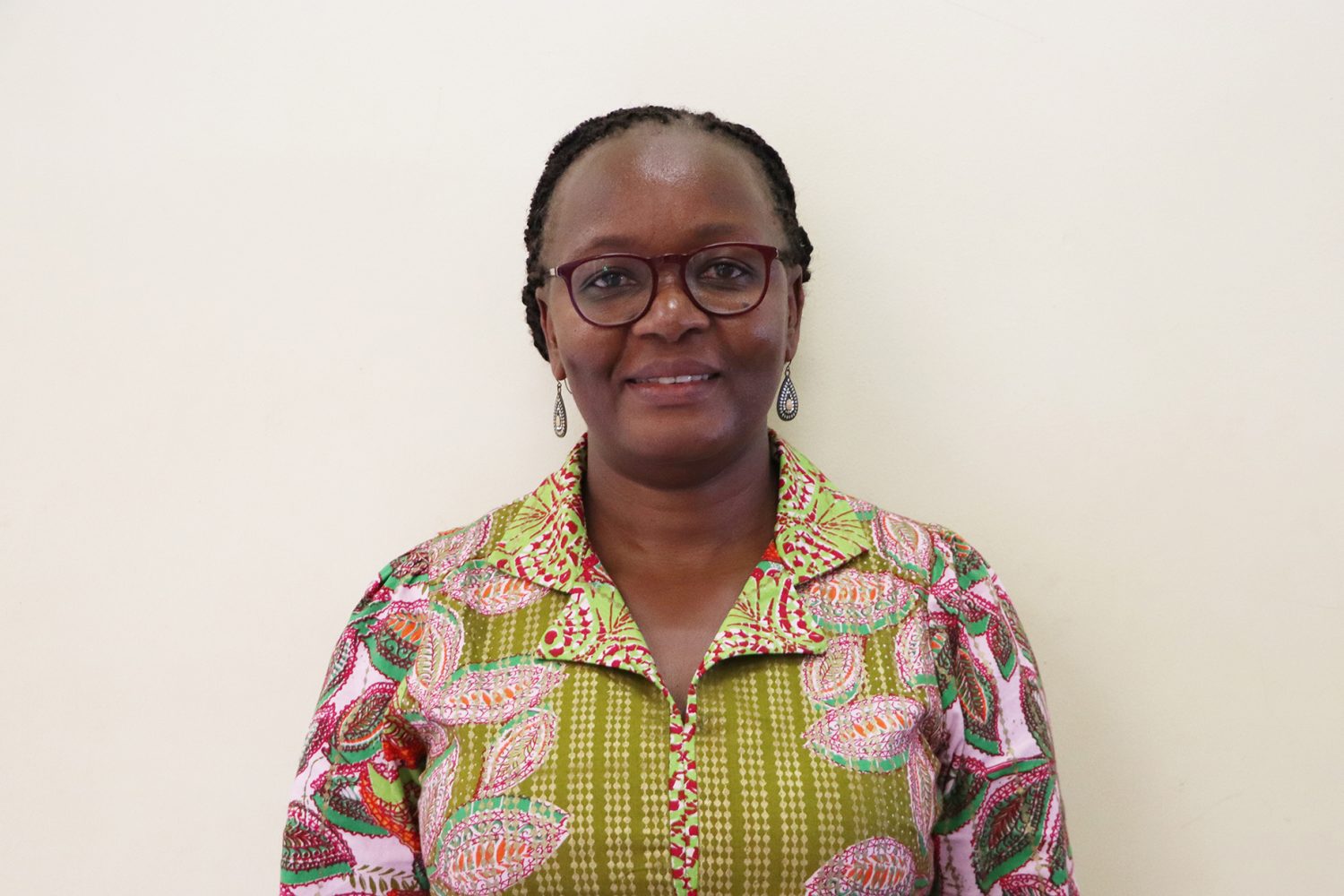
Message to Academic Staff
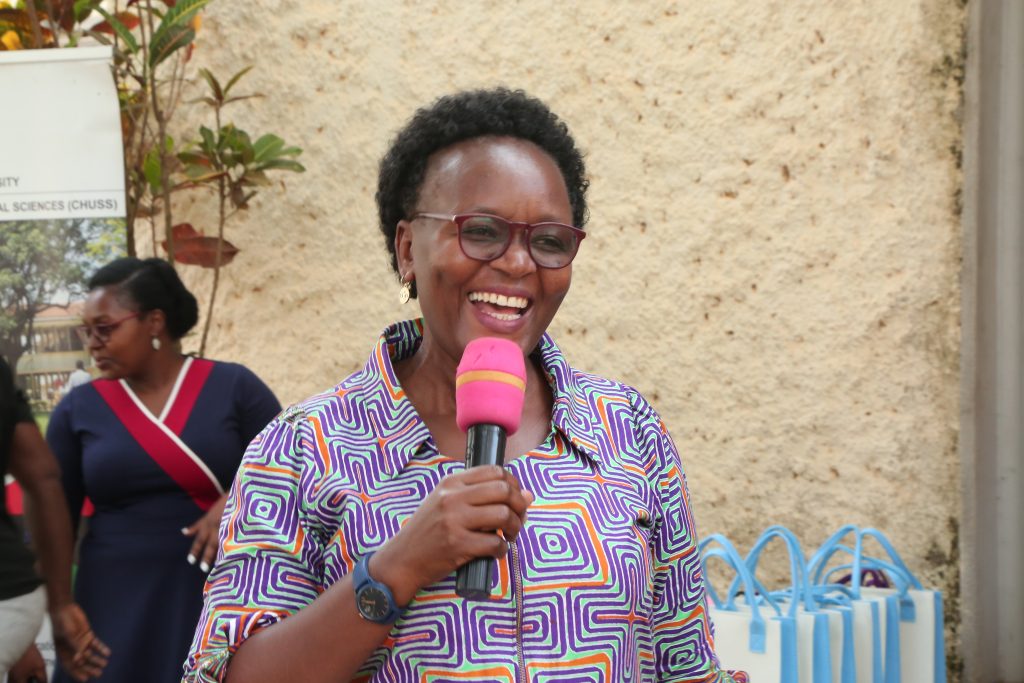
Q: What message do you have for your staff following this achievement?
Dr. Khanakwa:
First, I celebrate my staff and thank them for their dedication to supervision and student support. Academic work is demanding, and material rewards are often limited, but the true satisfaction comes from seeing students succeed.
I encourage my colleagues to remain committed. Yes, the workload is heavy, but many things are possible with dedication and teamwork. Let us continue working for the good of our students, our School, and Makerere University.
Leadership Rooted in Humility
Q: Many colleagues describe you as humble, down to earth, and hardworking. What shapes this character?
Dr. Khanakwa:
I think it is largely my upbringing. My mother was a primary school teacher from the 1950s until the mid-1980s. She worked extremely hard to raise us, combining teaching with farming to ensure we had school fees and basic needs. From her, I learned humility, discipline, and the value of hard work.
I also learned that leadership positions are temporary. You occupy them today, and tomorrow you move on. So humility is essential.
My graduate training also shaped me significantly. My PhD supervisor emphasized that graduate study is a full-time job and that results matter more than noise. Let people see your work through outcomes, not announcements.
Supervision as a Two-Way Commitment
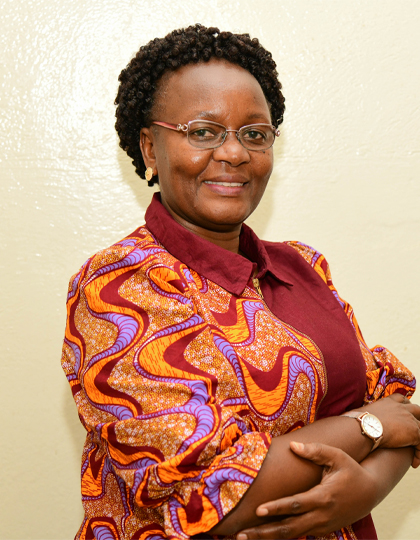
Q: How would you describe your supervision style?
Dr. Khanakwa:
I read my students’ work thoroughly, word by word. Sometimes my comments are tough, but they are honest. Supervision is a two-way commitment. I give feedback, but students must also respond and remain engaged. When that relationship works, progress happens.
Balancing Leadership, Scholarship, and Family
Q: How do you balance being a Dean, scholar, wife, mother, and daughter?
Dr. Khanakwa:
Honestly, I am not sure I balance perfectly. My mother lives far away in Bukwo, so visiting requires careful planning. My children grew up understanding the demands of academic life. I pursued my PhD in the United States and spent long periods away, but we adapted as a family.
Work has become part of my lifestyle. I use weekends to read dissertations, review manuscripts, and write. Sometimes my children ask if I ever sit without working, but this is the commitment I made. As we often say jokingly, “We humbly applied for the job, so let us do the job.”
Scholarship Beyond Supervision
Dr. Khanakwa is also an active scholar and editor. In the past year alone, she has:
- Edited scholarly volumes on archives, memory, method, and pedagogy
- Published a book with Routledge Companion
- Co-authored journal articles and book chapters with graduating students, including Priscah Asiimwe and Anatoli Lwasa Mpijja
“I feel an obligation to write with students,” she notes. “It takes time, energy, and commitment, but it is part of academic mentorship.”
Who Is Dr. Pamela Khanakwa?
Dr. Pamela Khanakwa is the Dean, School of Liberal and Performing Arts, College of Humanities and Social Sciences, Makerere University. She is a seasoned scholar, supervisor, administrator, and mentor whose leadership continues to redefine graduate training excellence. Details about Dr. Pamela Khanakwa can be accessed at: https://chuss.mak.ac.ug/en/personnel/pamela-khanakwa/
More details are available in her attached curriculum vitae.
The CHUSS End- Of-Year-Get-Together
On 12th December, 2025 the college leadership organised a get-together end of year gathering to take stock of the achievements, challenges and brainstorm together on how to move forward. The event was marked by entertainment, team building games, appreciation speeches, sharing a meal and a Christmas package for every staff
Retirees and staff recognised
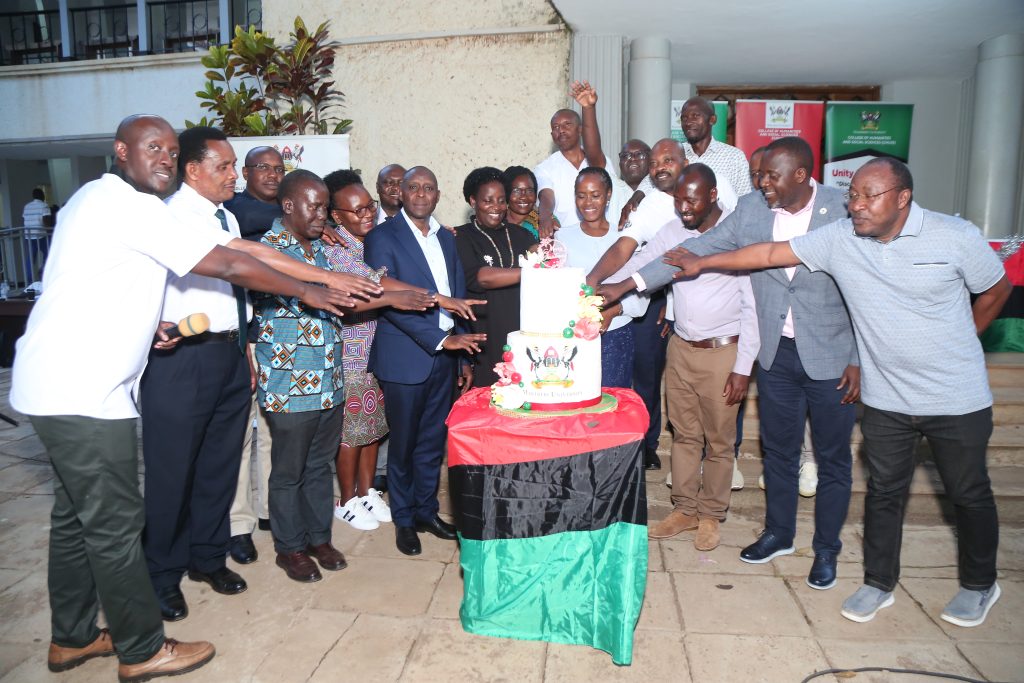
Five retired staff Dr. Micheal Wangotta Masakala, Dr. Anatole Kirigwajjo and Dr. Jackson Kizza Mukas (all from the School of Languages, Literature and Communication), Assoc. Prof. Florence Nansubuga (School of Psychology), Dr. Tusabe Gervase (School of Liberal and Perforing Arts) and Ms. Scovia Nganda Sekweyama (secretary from the School of Social Sciences) were recognised for their dedicated services to the university.
In addition to Dr. Pamela Khanakwa’s Award as Best PhD Supervisor and Dean, Ms. Birabwa Florence scooped the award of Best Registrar of the year. Birabwa is the registrar for the School of Liberal and Performing Arts.
Administrative and support staff including Ms. Mary Gyezaho and Annet Kashumbusha(both administrative secretaries in the Principals office), Farouq Lule (IT Officer), Godfrey Kakooza (cleaner), Charles Sebuguzi (driver) and Jane Anyango (Communications officer) were recognise with awards for outstanding service. Dr. Mohamed Mayanja Kajumba was from the School of Pyschology was recognised as the person with an outstanding talent in Handwriting.
The celebrations held in the Arts quadrangle were graced by the Vice Chancellor Academic Affairs Prof. Sarah Ssali and the Deputy Vice Chancellor in charge of Finance and Adminstration Prof. Ireeta Tumps.
Humanities & Social Sciences
Ugandan Journalists Trained on Peace and Gender-Sensitive Reporting Ahead of 2026 Elections
Published
4 weeks agoon
January 9, 2026By
Jane Anyango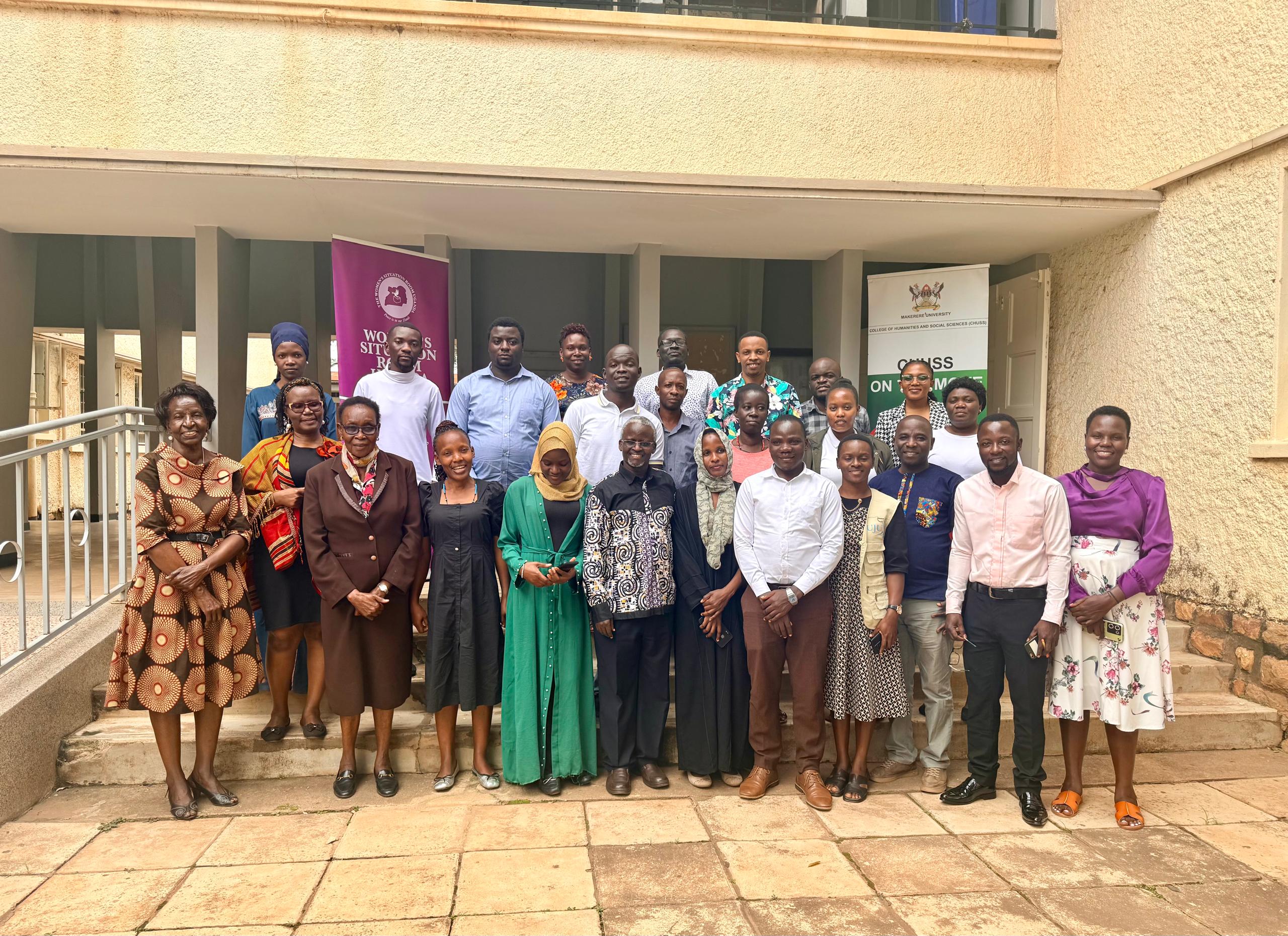
Kampala, Uganda – January 9, 2026
Ahead of the January 15 general elections, Ugandan journalists have undergone specialized training on peace and gender-sensitive reporting to ensure responsible media coverage during the election period. The two-day training, held from 8th to 9th January 2026 at Makerere University’s College of Humanities and Social Sciences Smart Room, was organized by the Women’s Situation Room (WSR) in partnership with various stakeholders and brought together journalists from across print, broadcast, and online platforms.
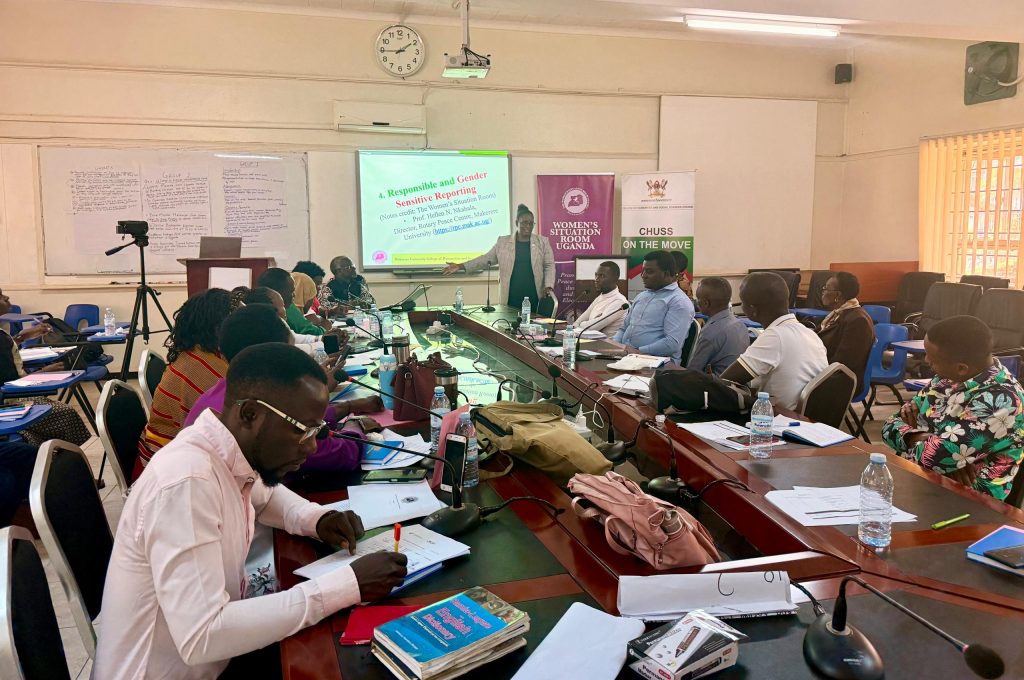
The main objective of the training was to strengthen the capacities of media in reporting and documenting electoral processes in a responsible and gender-sensitive manner. The specific objectives included: strengthening journalists’ skills to cover the 2026 elections in a fair, balanced, gender-sensitive, and non-violent partisan way; enhancing the role of media to enable citizens to be well-informed and actively participate in the election process; ensuring focused and balanced reporting on peace during and after elections; and strengthening partnerships between the WSR and media houses during the election period.
The training covered multiple critical modules. Day one focused on responsible conflict-sensitive reporting, emphasizing principles such as balance, impartiality, and accuracy. Participants explored the role of media as a relayer of the population’s voice, election monitor, catalyst for social cohesion and reconciliation, contributor to the accountability of political actors, and a platform for detecting and debunking digital media misinformation and hate speech.
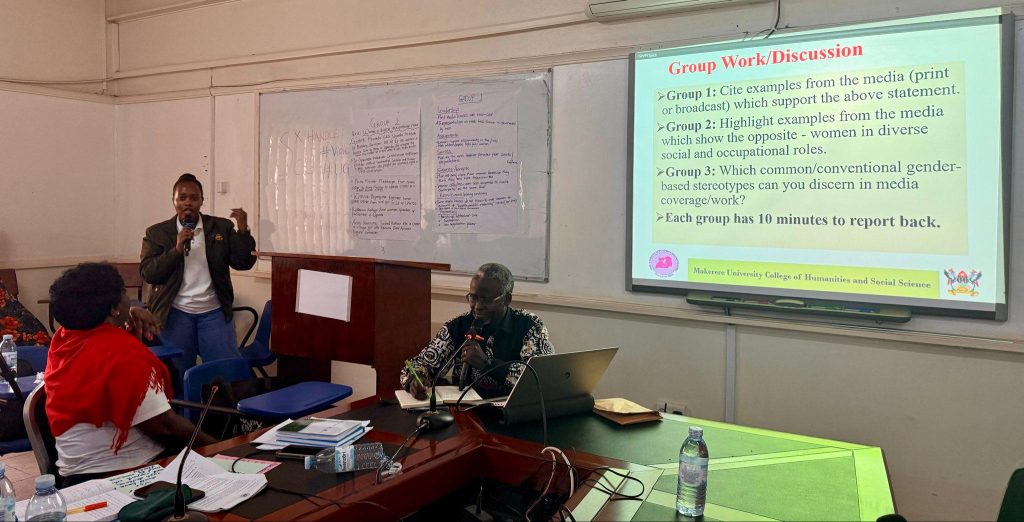
Day two addressed responsible and gender-sensitive reporting. Key aspects included the definition of gender-sensitive reporting, how to become a gender-sensitive reporter, critical elements in reporting with gender awareness, packaging gender-sensitive stories, and a checklist for detecting and avoiding gender-insensitive reporting.
Her Lordship, retired Judge Justice Mary Mayitum, emphasized the importance of peace as the foundation of development and democratic engagement. “Because we value peace more than anything. Without peace, really, you can do nothing. But where there is peace, you can have time to reflect, discuss with others, and join in meaningful dialogue,” she said. She warned that the country’s past conflicts, such as those in Gulu, underscored the necessity of maintaining national harmony.
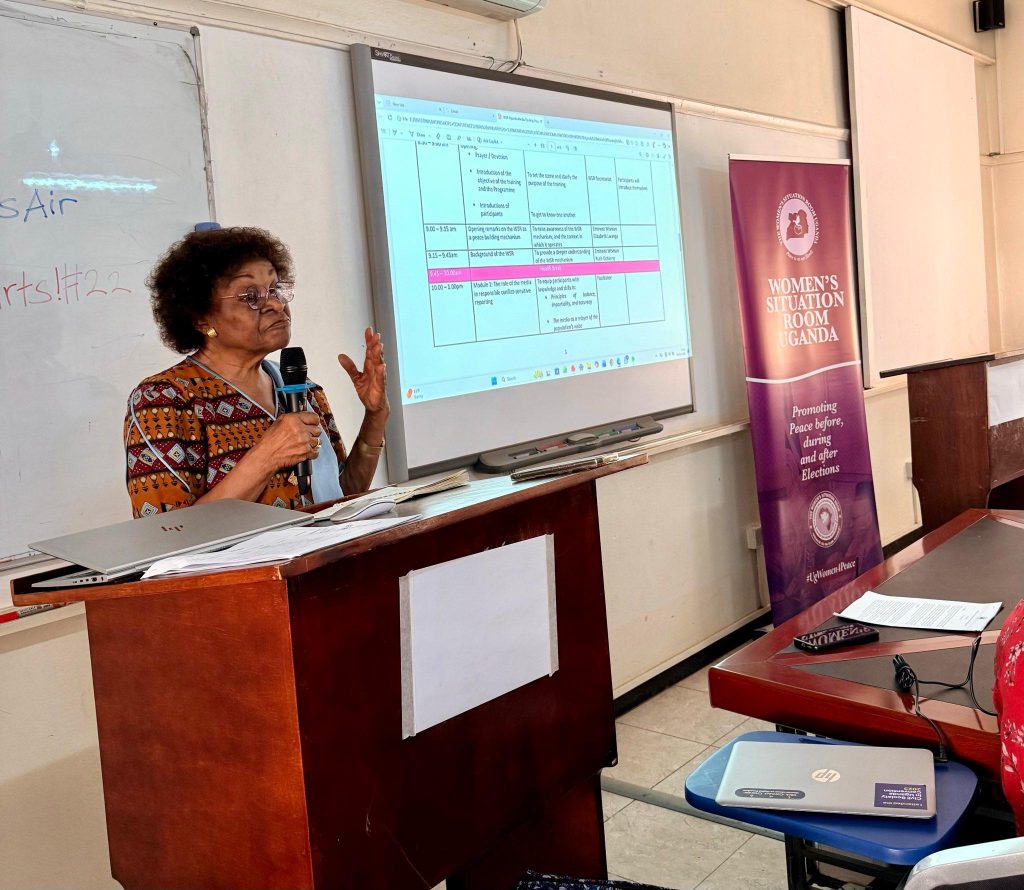
Justice Mayitum also urged other key election stakeholders to uphold peaceful conduct. “Being peaceful is the very heart of life. We have spoken to police, security personnel, political parties, and the Electoral Commission. We want politicians to have a code of conduct and to understand that it’s okay to think differently without fighting or hating one another,” she added.
Dr. William Tayebwa, lead facilitator and senior lecturer in the Department of Journalism and Communication at Makerere University, said, “This training is about conflict-sensitive reporting, peace journalism, and gender-sensitive reporting in the context of the elections. The emphasis was on giving female political candidates a voice while ensuring journalists report responsibly on election-related matters.”
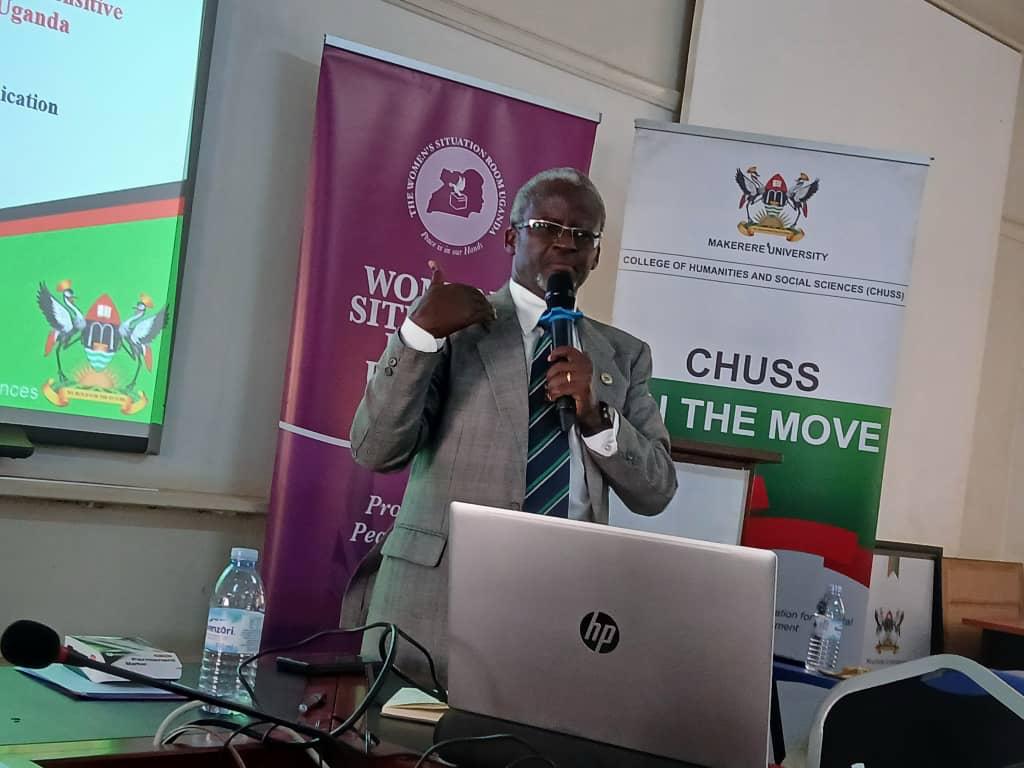
Participants described the training as timely and impactful. Tony Banizengabo of CBS Wakiso District said, “We’ve benefited a lot. We’ve been trained to write stories which bring peace, not conflict. Ahead of the elections, we are very ready to be part of peacemakers.”
Dorcas Kimono of UBC TV Kampala added, “It was so timely and rich. We learned how to report without promoting or fueling violence, giving voice to victims without angering them or encouraging violators. This is very vital, especially as we approach the 2026 elections.”
The training aims to equip media personnel with the knowledge and skills to uphold professional ethics while contributing to a peaceful, inclusive, and gender-sensitive electoral process.
Humanities & Social Sciences
CHUSS Invests Over UGX 100 Million in Interactive Smart Screens, Upgrades Teaching Infrastructure
Published
4 weeks agoon
January 9, 2026By
Jane Anyango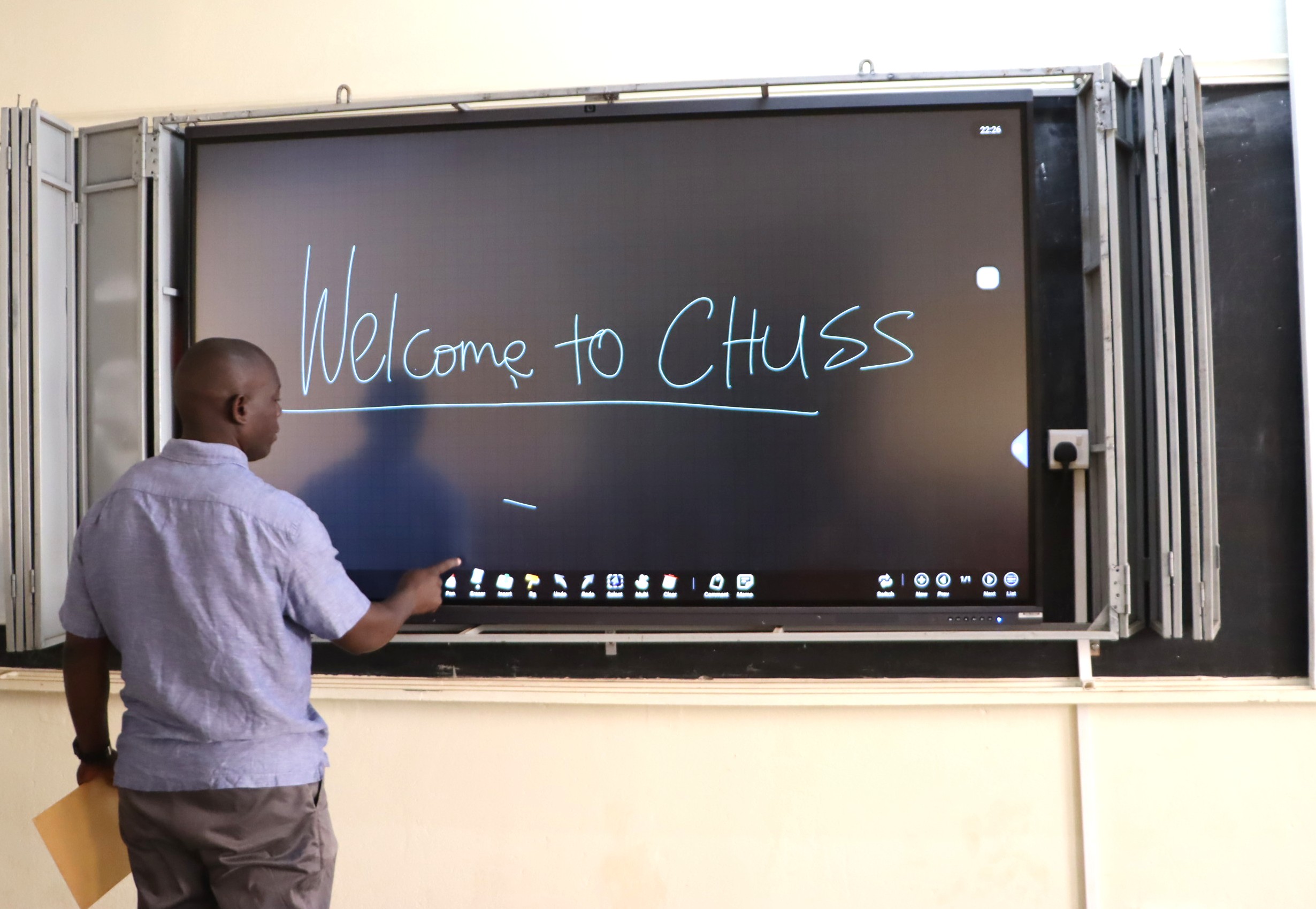
The College of Humanities and Social Sciences (CHUSS) has invested over UGX 100 million in the acquisition and installation of state-of-the-art interactive smart screens, marking a major step in strengthening digital teaching and learning at Makerere University.
Under the investment, 86-inch interactive 4K smart screens have been installed in major lecture rooms across the college’s schools, replacing traditional projectors and whiteboards. The upgrade is intended to modernise instructional delivery, enhance student engagement, and support blended and hybrid learning models.
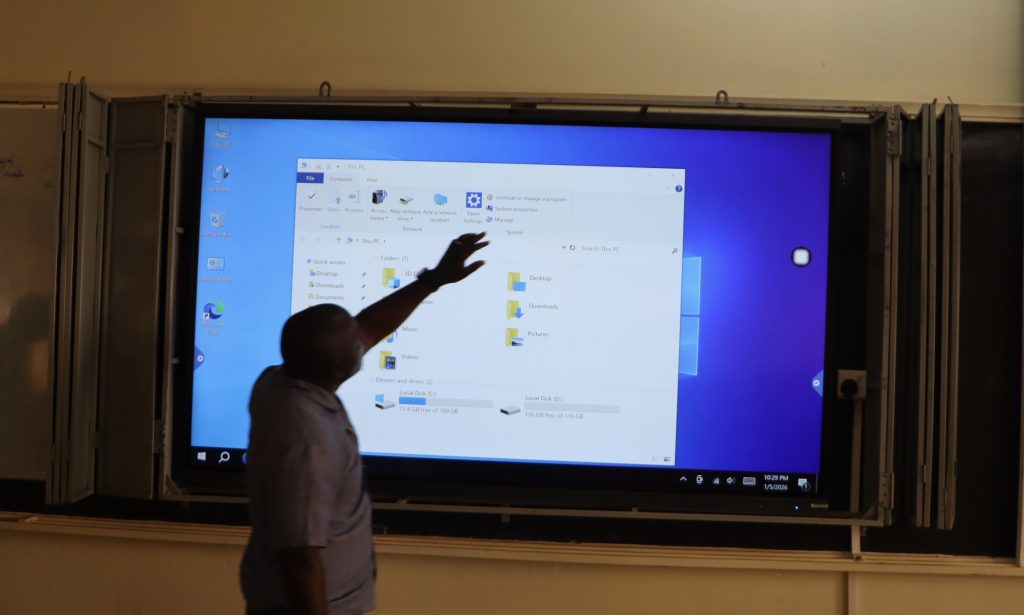
The touch-sensitive smart screens enable lecturers to write, draw, and annotate content directly on the display, while simultaneously integrating multimedia resources such as videos, presentations, and online materials. The screens support wireless screen casting from laptops, tablets, and smartphones, allowing for smooth, cable-free presentations and real-time sharing of students’ work during lectures and group discussions.
Designed to promote interactive and learner-centred pedagogy, the smart screens feature multi-touch capability that allows several users to interact with the board at the same time. This functionality supports collaborative learning, problem-solving exercises, and group presentations, making lessons more engaging and inclusive for students with diverse learning styles.
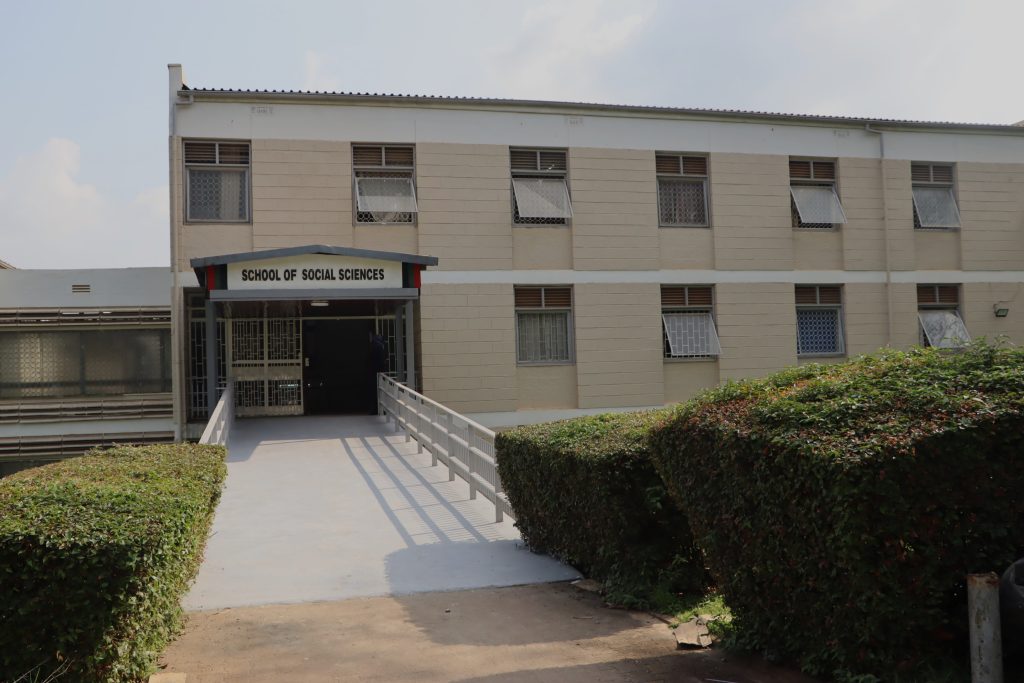
The boards are equipped with built-in cameras, microphones, and speakers, enabling seamless hybrid teaching through platforms such as Zoom, Microsoft Teams, and Google Meet. This allows lecturers to conduct virtual and physical classes simultaneously, record full lectures, and share them with students for later review, revision, or catch-up purposes.
Running on dual Android and Windows operating systems with full internet connectivity, the smart screens provide direct access to online academic resources, digital libraries, and learning management systems. Their AI-powered features further enhance lesson organisation, content clarity, and efficient, paper-free instruction, contributing to a more sustainable learning environment.
To ensure safety and prevent misuse, the smart screens are secured in fabricated metallic safety boxes installed in the lecture rooms.
Beyond digital infrastructure, CHUSS has also undertaken additional physical improvements. The Russian Lecture Room in the School of Languages, Literature and Communication has been furnished with new chairs, tables, and a projector screen, significantly enhancing its teaching environment.
The college has further improved staff working spaces, with the School of Psychology renovating office space and classrooms in Block A, while similar renovations have been carried out in the School of Social Sciences.
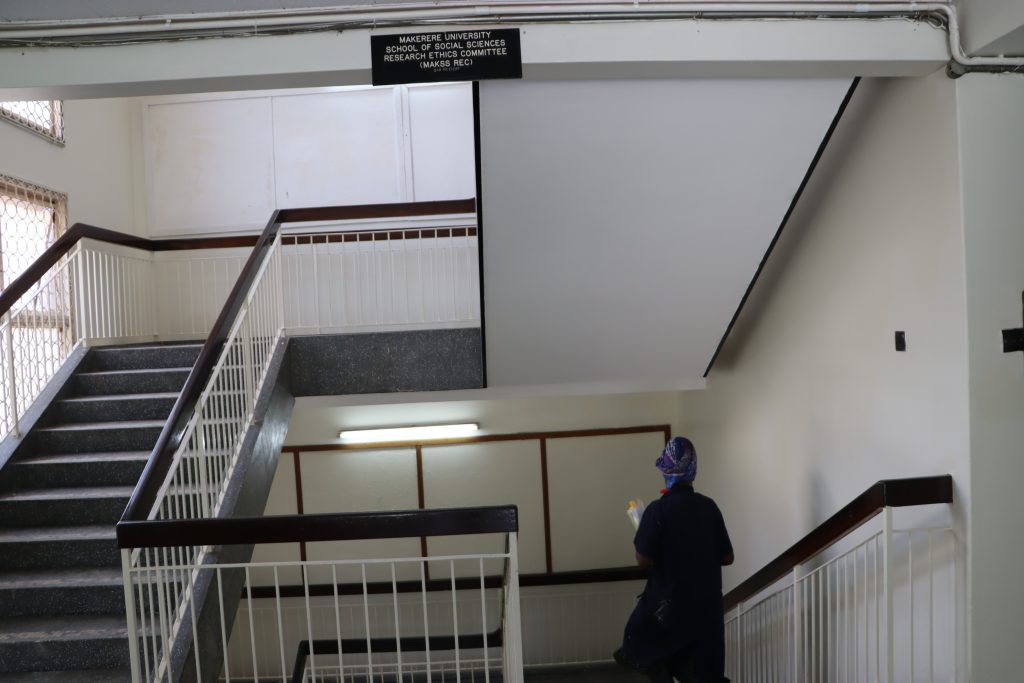
The infrastructural upgrades underscore CHUSS’ commitment to improving the quality of teaching, learning, and staff working conditions in line with Makerere University’s digital transformation agenda.
Trending
-

 General1 week ago
General1 week agoPress Statement: Makerere University Congratulates Former Staff and Students on Successful Election to Public Office
-

 General1 week ago
General1 week agoPress Statement: Makerere 76th Graduation Ceremony
-

 General2 days ago
General2 days agoCall for Applications: Admission to Postgraduate Programmes 2026/2027
-

 General3 days ago
General3 days agoSimon Mungudit: Mak’s Best Performing Male Science Student & Rising Star in Petroleum Geoscience
-

 Health4 days ago
Health4 days agoCall For Applications: MakNCD Masters and PhD Training Opportunities
